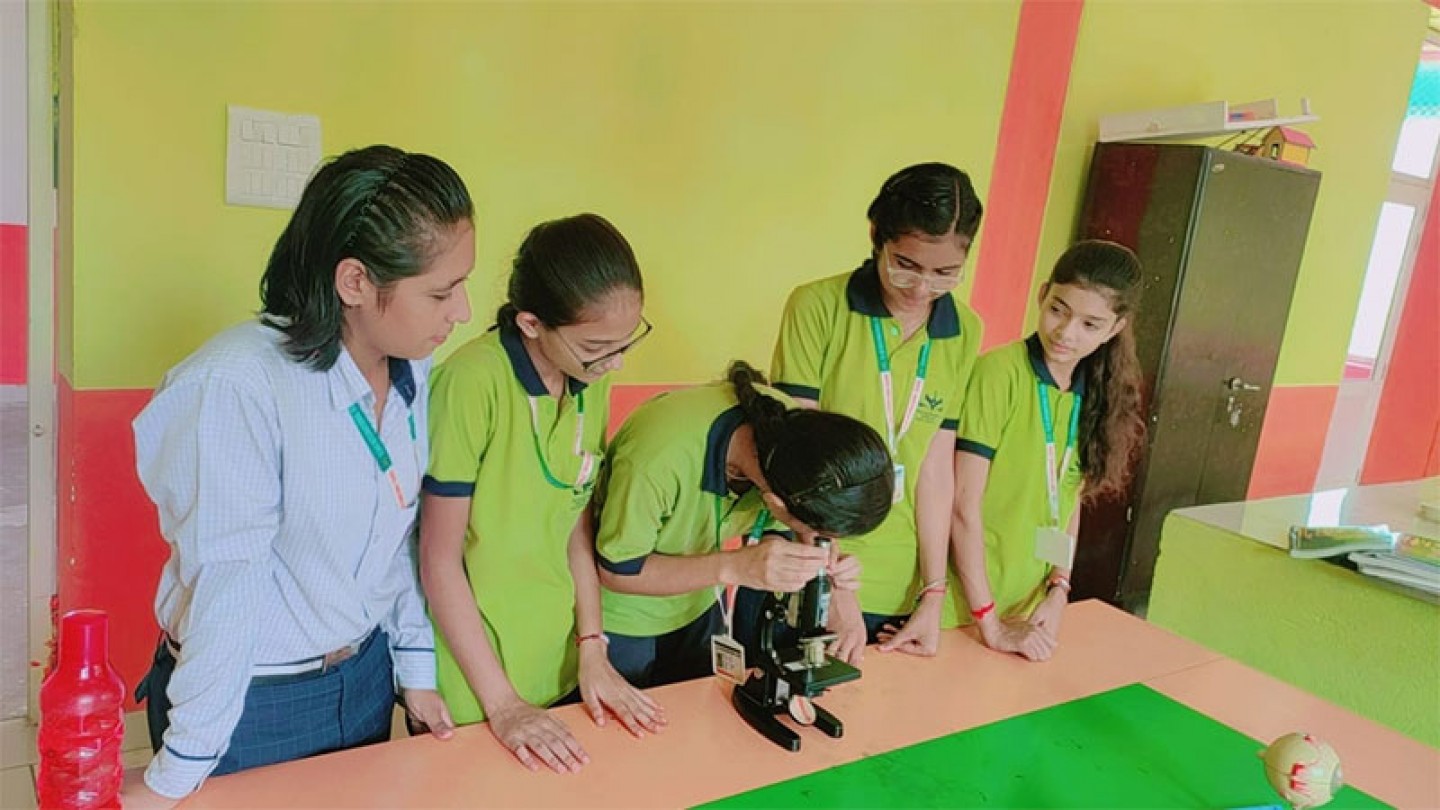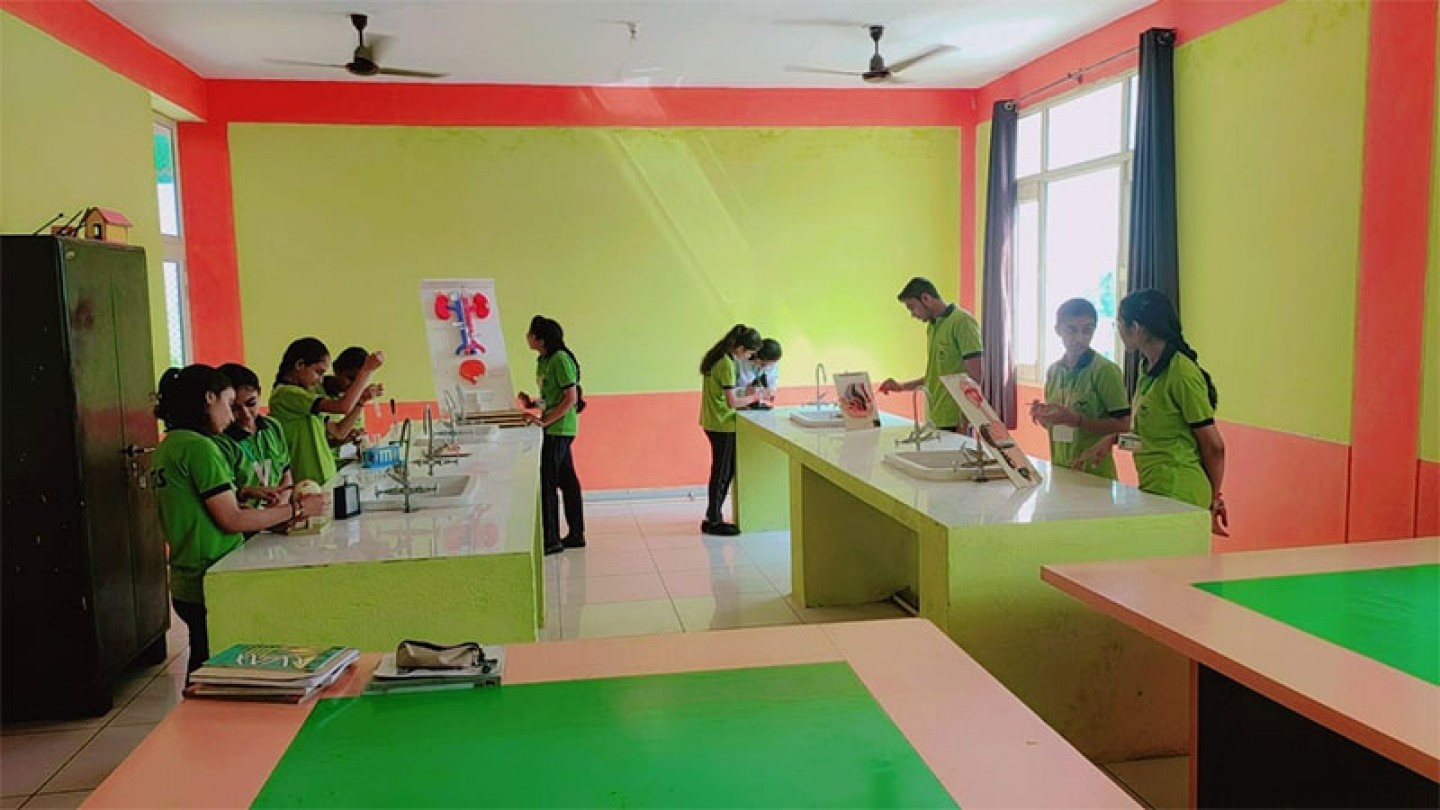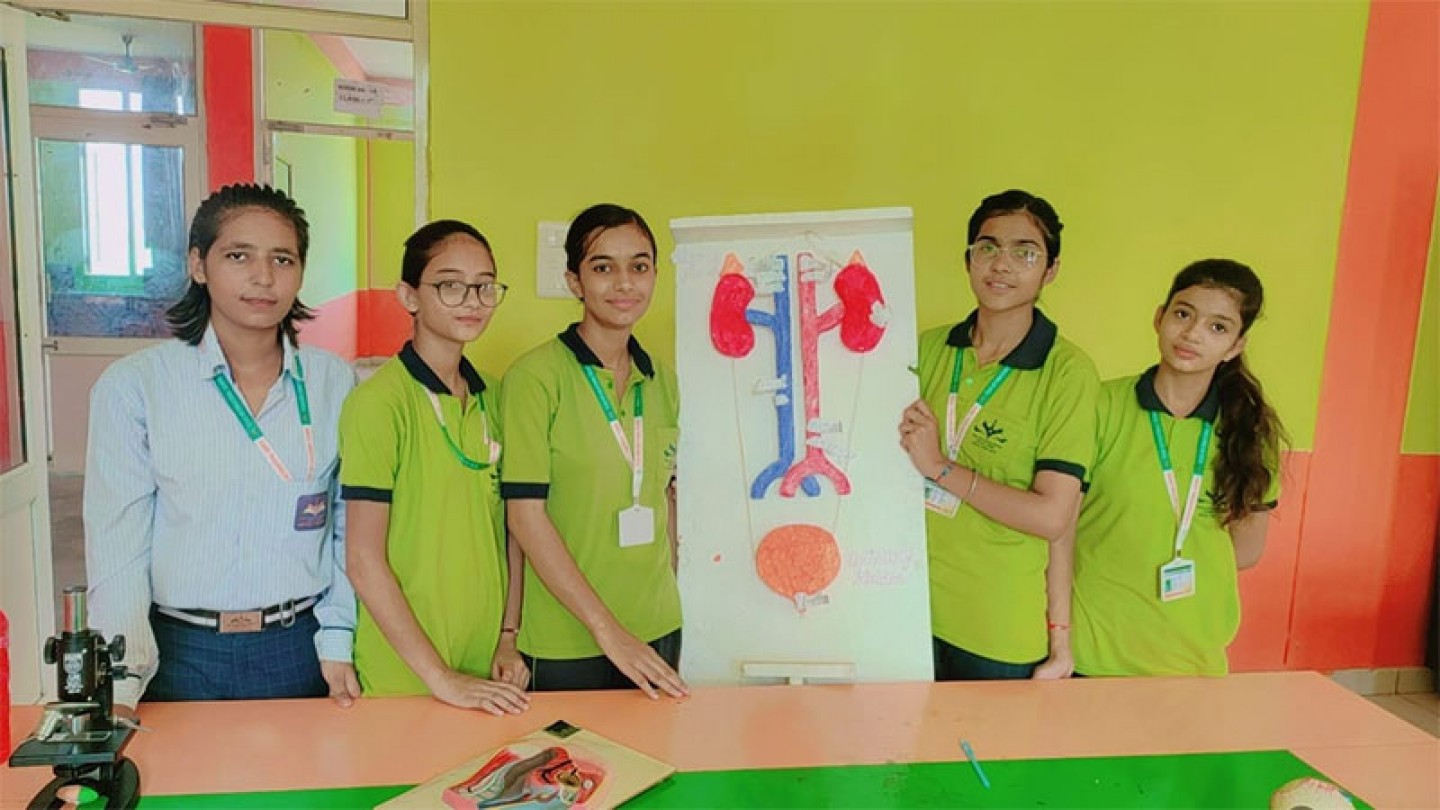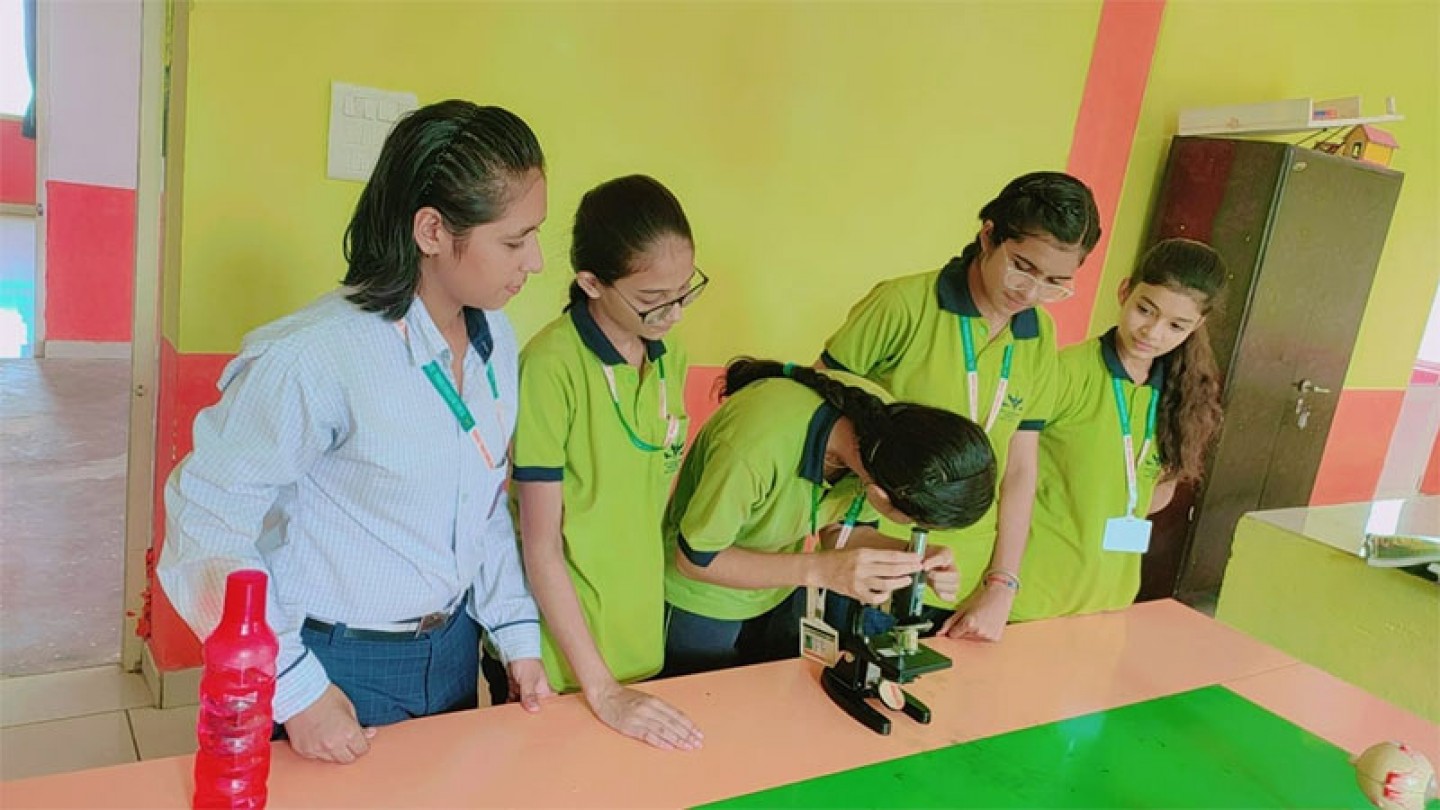Science Lab
A school science lab serves as a hub for experiential learning and scientific discovery. It is equipped with a wide range of instruments, apparatus, and materials that allow students to conduct experiments and investigations across various scientific disciplines such as physics, chemistry, biology, and environmental science.
In the science lab, students have the opportunity to put theory into practice. They can observe natural phenomena, conduct experiments, and analyze data, which not only reinforces classroom learning but also deepens their understanding of scientific concepts. This hands-on approach fosters curiosity, problem-solving skills, and critical thinking, as students learn to formulate hypotheses, design experiments, and draw conclusions based on evidence.


Furthermore, a well-organized science lab is a place where students learn about safety protocols and ethical considerations in scientific research. They become familiar with proper lab techniques, including handling chemicals, using lab equipment, and disposing of waste safely. This knowledge instills a sense of responsibility and respect for the scientific process, emphasizing the importance of accuracy and precision in their work.


A school science lab also encourages collaboration among students, as they often work in teams to conduct experiments and analyze results. This promotes teamwork, communication skills, and the sharing of ideas and insights, enhancing the overall learning experience.
Overall, a school science lab is a crucial component of modern education, as it not only prepares students for careers in science and technology but also equips them with essential life skills, such as critical thinking, problem-solving, and ethical conduct, that are valuable in various fields and aspects of life.



